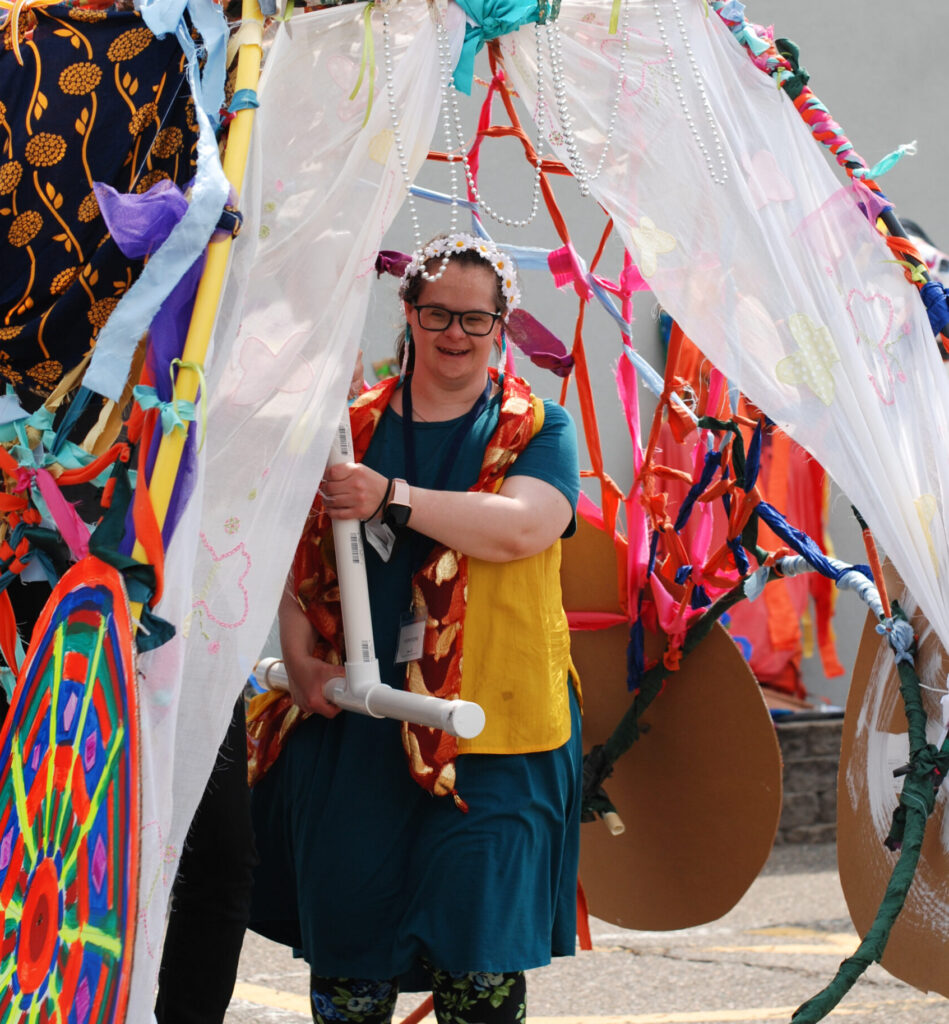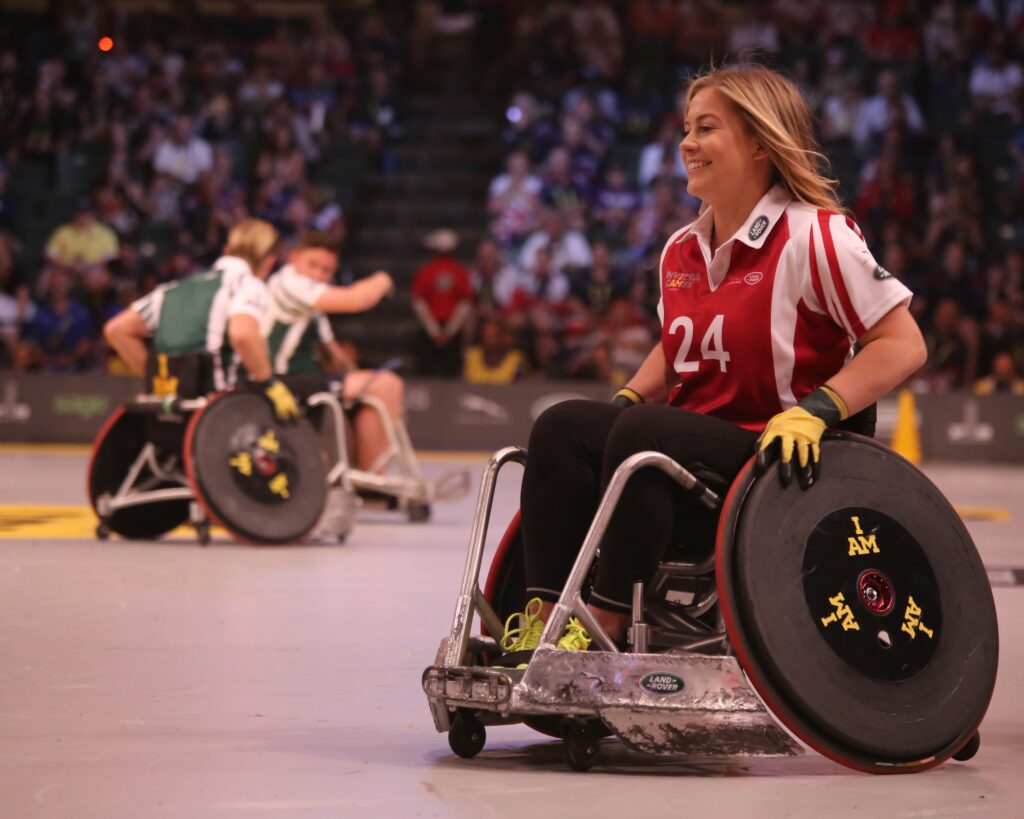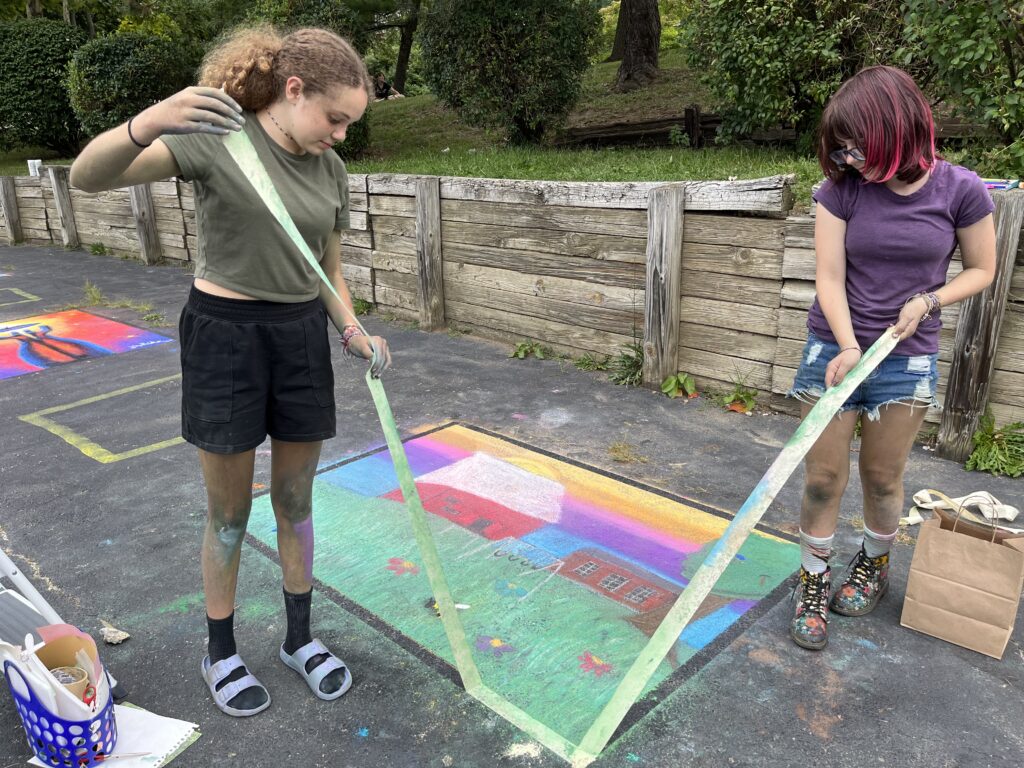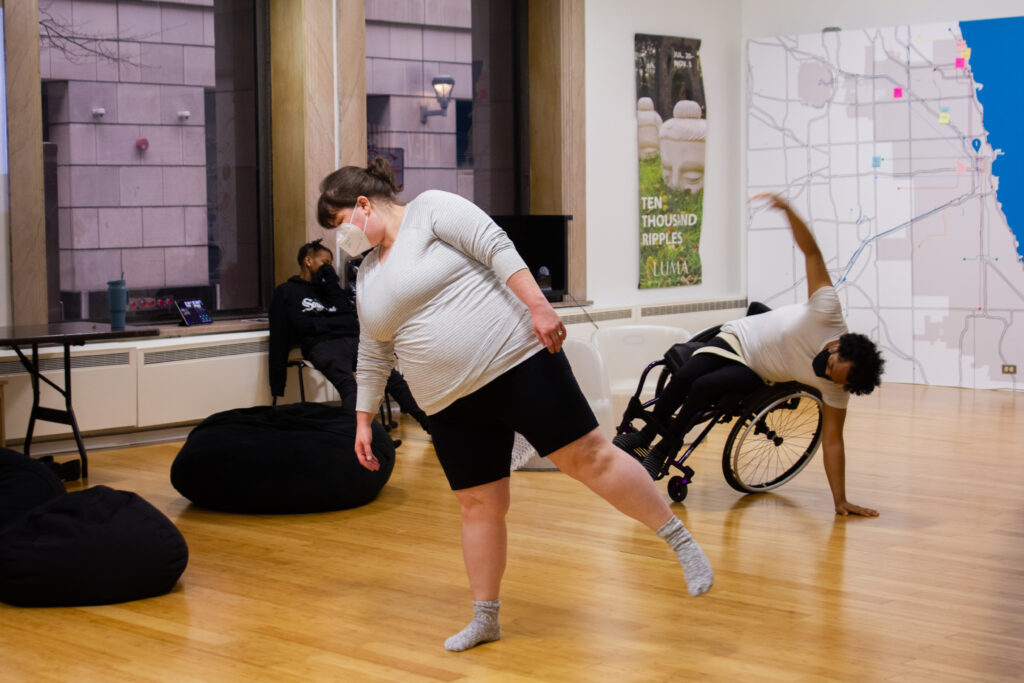Accessibility Center
This page holds resources designed to help arts and cultural organizations in making programming, services, and communications more accessible.
Looking for information on access services Arts Midwest offers? Visit our Accessibility Policy.

Federal + State Laws
Arts Midwest supports, informs, and celebrate arts organizations and creative communities in Illinois, Indiana, Iowa, Michigan, Minnesota, North Dakota, Ohio, South Dakota, Wisconsin, the Native Nations that share this geography, and beyond.
Find information on federal and state laws below, and learn more about how your organization can comply with these requirements.
Section 504 of the Rehabilitation Act of 1973 provides that no otherwise qualified individual with a disability in the U.S., shall, solely by reason of their disability, be excluded from participation in, be denied benefits of, or be subject to discrimination under any program or activity receiving federal financial assistance. 504 compliance is required for employers, agencies, businesses, organizations and programs that receive Federal financial assistance.
The Americans with Disabilities Act (ADA) prohibits discrimination on the basis of disability in employment (Title I), state and local government services (Title II), places of public accommodation, and commercial facilities (Title III). Places of public accommodation include but are not limited to: small and large businesses, non-profits, for-profits, churches, clubs, and groups.
The ADA extends requirements of Section 504 to:
- All activities of state and local government under Title II
- Places of public accommodation and commercial facilities operated by private entities, including places of “public display or collection,” such as museums, under Title III
This means:
- Cultural groups operated by state or local governments are covered under Title II
- Title III covers cultural groups operated by private entities as places of public accommodation, even if they do not receive federal funds
- Places of public accommodation that are also recipients of federal financial assistance must comply with requirements of both Title III of the ADA and Section 504
Resources:
- ADA Information – Guide to Disability Rights Laws by Ada.gov. This provides an overview of Federal civil rights laws that ensure equal opportunity for people with disabilities.
- The ADA National Network Disability Law Handbook(new-window): A broad overview of rights and obligations under federal disability laws.
- Website Accessibility Under Title II of the ADA
- Accessibility Laws and Compliance Standards – resources compiled by National Endowment for the Arts
Accessibility laws may vary by state. For more information about accessibility laws in each state, and provisions made by state arts agencies in our region, please contact your state arts agency accessibility coordinator directly.
Read a Resource
-
Learn More
Embracing the Social Model of Disability for Arts Organizations
How an organization approaches accessibility helps it serve its audience in the most universally accessible way. A holistic view of disability lets you build a culture of understanding around inclusive, accessible programs and offerings.

Tools + Resources
This section includes information on accessibility tools and resources, as well as a list of organizations committed to advancing accessibility work.
These workbooks and checklists are intended to help you assess your organization’s accessibility, identify barriers that may exist, and create a plan to increase access for people with disabilities.
- WCAG Checklist: Easy-to-digest checklist for meeting WCAG standards created by The A11Y Project. All federal agencies and contractors must comply with WCAG 2.1 A/AA.
- Web Content Accessibility Guidelines (WCAG) 2.1: An in-depth review of guidelines for meeting WCAG 2.1. Most helpful for Web developers to use in making websites accessible. Provided by the World Wide Web Consortium.
- Accessible Electronic Documents: A resource on creating accessible electronic documents provided by Minnesota IT Services.
- Image Description Resources: This webpage links out to a few guidelines, webinars, and training opportunities for best practices in image descriptions. Provided by NCAM.
- Accessibility Image Alt Text Best Practices: Tips for writing image alt text, provided by Siteimprove.
- Cooper Hewitt Guidelines for Image Description: Resource from Cooper Hewitt for tips on writing image descriptions. This website is especially helpful for art centers, museums, and other organizations who would use image descriptions for artwork.
- Font face: Recommendations for accessible font face and style provided by Penn State University.
- Social Media: Tips on accessible social media usage provided by the University of Minnesota.
- Hemingway editor app: A resource to help simplify your writing, with the goal of making your language more accessible.
- Downloadable Disability Access Symbols: Provided by Graphic Artists Guild.
- Accessible meetings: Tips on ensuring accessibility of your meetings, conference calls, and more provided by Minnesota IT Services.
- Resources to Help Ensure Accessibility for Your Virtual Events for People With Disabilities: Provided by National Endowment for the Arts.
- How to Make Your Virtual Meetings and Events Accessible to the Disability Community: Resource from Rooted in Rights on making your virtual meetings and events accessible. Shares information on what access may look like for those with intellectual and developmental disabilities.
- Leading Accessible Virtual Programs: Recorded webinar from Chicago Cultural Accessibility Consortium. Captioned and audio described. This webinar walks through best practices to keep in mind when hosting virtual programming.
- Video accessibility guide for content creators and viewers: Adobe’s guide to making videos accessible, including tips on live captioning, accessible platforms, transcripts, and more.
Services
- Rev.com: Offers live captioning, post-production captioning, and transcription for videos and events.
- CADET: A Caption and Description Editing tool that is FREE for download, and can be used for post-production needs and audio-description scripts.
- Captioning/CART in the Performing Arts: Resource from Captioning Activism and Community on live captioning companies and resources for performing arts venues.
- Find an ASL interpreter in Minnesota: This webpage lists contacts for freelance, agency, and remote video American Sign Language (ASL) interpreters in Minnesota.
- Veritext: A company based in Minneapolis that offers human generated, live captioning for your events or meetings.
- Middle English Interpreting: Language interpretation services based in Minneapolis, including ASL interpretation, Somali, Spanish, and more.
- ASLIS: A company based in Minnesota that offers on site ASL interpretation, live video ASL interpretation, live captioning, adding ASL interpretation to pre-recorded videos, and trainings and workshops.
- Equipment Loans: Chicago Cultural Accessibility Consortium offers free short term equipment loans to organizations based in the Chicago area. Equipment includes stationary audio description kit, stationary assistive listening system, portable FM assistive listening system, and DIY captioning equipment.
How-to
- Video Captions in a Couple Minutes: A 2-minute video from Rooted in Rights that describes how video captions work.
- Zoom closed captioning and live transcription: Short webpage that shows how to manage closed captioning and live transcription in Zoom.
- Audio Description in a Couple Minutes: A 2-minute video from Rooted in Rights that describes how audio description works.
- Things You Should Know: An 11 minute video from Indiana Arts Commission and Luna Languages Services that walks through scheduling and working with an ASL interpreter.
- Transcripts: in making audio and video media accessible: This W3C webpage describes what transcripts are, knowing when your media could use them, the process of transcribing, and some examples.
- Relay Services Description of various types of relay services, as well as how they work, provided by National Association of the Deaf.
- APA Medical Equipment Rental: Mobility aid equipment rental resource based in Minneapolis, MN.
- Wheelchair Etiquette:. Tips for wheelchair etiquette provided by Adaptive Living Guide.
In striving for accessibility, it’s crucial to understand what makes communications inclusive and welcoming, from in-person to digital.
Read a Resource
-
Learn More
Creating an Accessibility Plan for Your Arts Organization
Making programs and services accessible is an important goal. This article outlines a do-it-yourself approach for arts and cultural organizations to plan for disability access that complies with the Americans with Disabilities Act (ADA).

Organizations + Government Agencies Devoted to Accessibility
This is a non-exhaustive list of local, regional, national, and international organizations and government agencies devoted to accessibility work.
-
Great Lakes ADA Center
The Great Lakes ADA Center serves the states of IL, IN, MI, MN, OH, and WI. They are available for customized training and assistance in helping your organization comply with the ADA.
-
Great Plains ADA Center
Great Plains ADA Center serves the state of Iowa. They can provide information, technical assistance, and training to help your organization comply with the ADA.
-
Rocky Mountain ADA Center
Rocky Mountain ADA Center serves Colorado, Utah, Montana, Wyoming, North Dakota, and South Dakota. They can provide information, guidance, and training to help your organization comply with the ADA.
-
Kennedy Center
The Kennedy Center’s Access/VSA International Network hosts the Leadership Exchange in Arts and Disability every year, which provides opportunity for professionals in the field to develop best practices and resources; engage in conversations with colleagues and experts from around the world; and learn practical methods for designing inclusive arts experiences and environments.
-
National Arts and Disability Center
The National Arts and Disability Center hosts resources for artists with disabilities, arts organizations, and arts administrators, and a comprehensive site that includes extensive information on assistive devices, services, and products.
-
Minnesota Access Alliance
Minnesota Access Alliance is led by a group of arts and cultural administrators focused on knowledge and resource sharing around accessibility, with the mission to raise the bar for accessibility across the arts and culture sector in Minnesota.
-
Chicago Cultural Access
Chicago Cultural Access Consortium’s mission is to empower Chicago’s cultural spaces to become more accessible to visitors with disabilities. They facilitate a dynamic community of cultural administrators and people with disabilities to remove barriers in cultural organizations. They offer professional development and free webinars, equipment loans, and an access calendar which promotes accessible events in the Chicago region.
Read a Resource
-
Learn More
How To Complete a Section 504 Self-Evaluation for Accessibility
Need to complete a 504 self-evaluation for your organization? Unsure where to start? This resource intends to help break down the process. We’ll share how we approached our most recent 504 self-evaluation at Arts Midwest and what we learned.

Contact us about accessibility.
Have questions or suggestions about this page? Please reach out to our Accessibility Coordinators.
John Kaiser Chelsea Brown